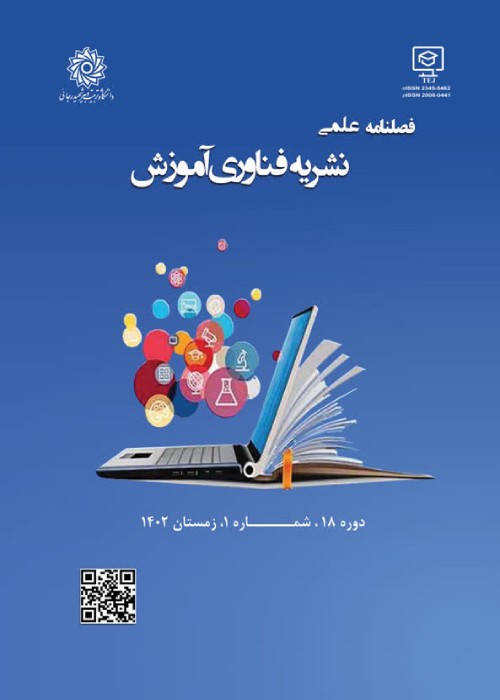Effectiveness of humorous electronic content on the learning and retention of math on fifth grade students
One of the most sensitive parts of the education system in every person's life is elementary school. A period that plays a very important role in the life of each person; and the success or failure in this period will have very serious effects on the future of the individual. Meanwhile, the role and importance of mathematics is felt more than other subject matters as many students are weak in this course. For this reason, the teaching of this course should be changed from a strict and inflexible subject matter that is limited to lecturing to various approaches in accordance with mathematics education and active teaching methods along with new educational technologies. Educational technology and e-learning are some of the concepts that were introduced and attracted a lot of attention in the field of education with the growth and development of information and communication technologies (ICTs). Recently, Wanser proposed a theory of educational humor processing, a theory that has evolved from the basic models of persuasion and incompatibility theories to explain the role of educational humor in facilitating learning. This research conducted with the aim of evaluating the effectiveness of the electronic humorous content on the learning and retention of students' mathematics.
The present study was a semi-experimental research using pre-test-post-test design with experimental and control groups. The population consisted of all 5th grade students (N=2200) in elementary schools at Birjand in 2018. The statistical population of the study consisted of 58 people who were selected with convenience sampling. The study sample included a class as the experimental group and another class as the control group selected out of four classes, each consisting of 29 people. For data collection, Teacher-made test used in pre-test and post-test. In addition to, descriptive analysis, covariance test used to analyze the data.
There is a significant difference between the mean scores of the experimental and control groups' mathematical learning variable. Regarding ETA, we can say that using humorous content, explains 15.4% of the variance of post-test scores (ƞ 2 = 15.4%،p< .05). There was no significant difference between the mean scores of pre-test and post-test of retention in the experimental group compared to the control group. The findings of this study showed that the effect of humorous electronic mathematical content on learning was significant (15%), but the effect of humorous electronic content on retention was not significant.
The use of e-content is a step forward toward the effectiveness of the teaching and learning process. The application of this research results for pedagogues is that in order to improve mathematics learning, we should pay attention to the role and function of humorous education and electronic content; and by combining these two direct mathematical teaching methods to create interest in this subject matter. Combining the process of teaching mathematics with humorous e-content will increase students' attention and motivation, improve their mathematical learning, and foster their creative power. The findings of several studies suggest that providing opportunities for collaborative, moderated, and competitive learning in schools can help reduce anxiety and improve students' math performance. This requires a systematic and purposeful effort on the part of the education system to bring about a change in math textbooks and teaching methods. For this reason, it is necessary to take essential measures to make the e-content as effective as possible. This requires that professionals, teachers, and all educators collaborate effectively and efficiently to successfully design and produce e-content.
- حق عضویت دریافتی صرف حمایت از نشریات عضو و نگهداری، تکمیل و توسعه مگیران میشود.
- پرداخت حق اشتراک و دانلود مقالات اجازه بازنشر آن در سایر رسانههای چاپی و دیجیتال را به کاربر نمیدهد.





